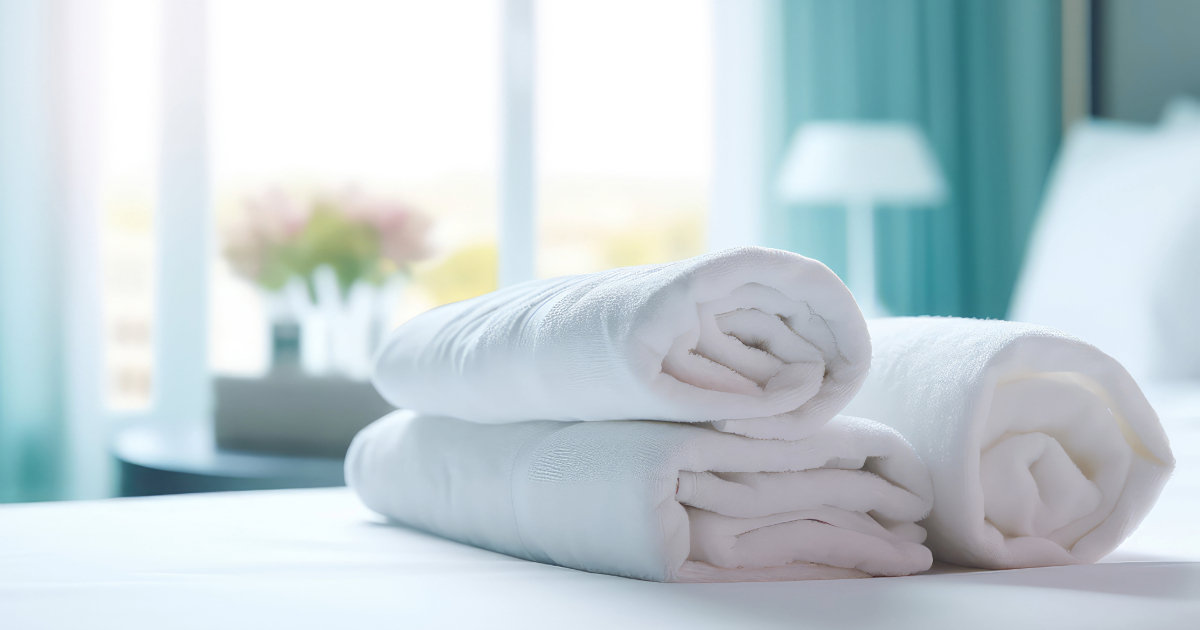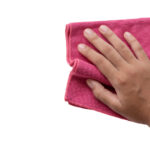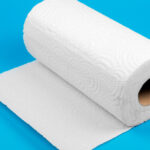Towels are an essential part of any home. We use them every day after showering, washing our hands, doing dishes, and more.

With so much use, it’s important to choose a quality towel that will be soft, absorbent, quick-drying, and durable.
The two most common materials for towels are linen and cotton. But which one is better?
Absorbency
The primary job of any towel is to absorb moisture. So absorbency is a key factor to consider when choosing between linen and cotton.
Linen is highly absorbent, even more so than cotton. The fibers in linen towels are very hollow, which allows them to soak up a lot of water. Linen can absorb up to 20% of its weight in water. The absorbency also improves over time as the towels are washed and used.
Cotton is also quite absorbent due to its fiber structure. A high quality cotton towel can absorb around 15-25% of its weight in water. However, cotton tends to hold onto moisture rather than wick it away.
Verdict: Linen wins for higher overall absorbency. It will soak up more water initially and dry faster than cotton.
Durability
You don’t want to be replacing your towels frequently, so durability is key. How do linen and cotton compare?
Linen is extremely durable, even when used frequently. The fibers come from the flax plant which makes them very strong. With proper care, a linen towel can last for 20-30 years or more. The texture also improves over time.
Cotton towels are less durable, lasting around 3-5 years with regular use. The cotton fibers tend to break down faster with washing and drying. Pilling is common with cotton towels as they age.
Verdict: Linen is far more durable than cotton when it comes to towels. It will withstand years of regular use and laundering.
Cost
Upfront cost is often a factor when buying towels. Here’s how linen and cotton compare:
Linen towels are typically more expensive than cotton, often costing 1.5 to 3 times more. However, their durability makes up for the higher initial investment over years of use.
Cotton towels are widely available at low costs since cotton is an inexpensive material. But the towels will need replacing more often.
Verdict: Cotton towels are cheaper upfront, but linen towels can save money in the long run due to their longevity.
Environmental Impact
Many people consider the environmental impact of materials today. Here’s how linen and cotton compare:
- Linen is one of the most eco-friendly fabrics. Flax plants require very little water, pesticides, or fertilizers to grow. The entire plant is used efficiently as well.
- Cotton uses a lot of water and land resources. Conventional cotton also utilizes substantial pesticides, which are hazardous. However, organic cotton farming reduces the environmental impact.
Verdict: Linen is the more sustainable, eco-friendly choice over conventional cotton. But organic cotton helps reduce the environmental impact.
Aesthetics
Beyond function, aesthetics matter too. Linen and cotton offer different look and feels:
- Linen has a natural lustrous look. It’s available in many natural shades as well as vibrant colors. The texture is smooth with a subtle slubbing that increases over time.
- Cotton is softer to the touch initially. It comes in a huge range of colors and patterns. But the surface texture can become rough over time with pilling.
Verdict: For a sleek look with sheen, linen wins. But cotton offers more variety in colors, prints, and initial softness.
Drying Time
After using a towel, you want it to dry quickly so it’s ready to use again. Here’s how the materials compare:
- Linen dries very fast, usually within a few hours if hung to dry. The fibers wick away moisture efficiently.
- Cotton holds onto moisture for longer, so drying can take 1-2 days if air dried. The fibers absorb water but don’t release it as quickly.
Verdict: Linen’s faster drying time makes it more convenient than cotton when you need a towel to use multiple times a day.
Odor Resistance
Towels that resist odors are ideal since they can be used multiple times before washing. Here are the differences:
- Linen has natural antimicrobial properties that prevent bacterial growth. This allows linen towels to be used for a few days without getting musty.
- Cotton is more prone to retaining odors from mildew and bacteria if not washed frequently. The dampness creates an environment for odor-causing germs.
Verdict: Linen wins for odor resistance. Its antimicrobial properties keep towels fresher for longer between washes.
Texture Over Time
Does texture improve or decline with repeated use and washing?
- Linen gets softer and more lustrous over time. Each wash causes the fibers to relax and the towel becomes more pliable.
- Cotton tends to become rougher with age. Fraying and pilling degrade the soft surface texture after repeated use and laundering.
Verdict: Linen improves with age, while cotton declines over time. Linen’s texture is enhanced through years of use.
Ease of Care
To keep towels in good condition, proper care is essential. Here are the care requirements:
- Linen can be machine washed in cold or warm water, and tumble dried on low. Ironing is not required. Bleach should be avoided.
- Cotton can also be machine washed and dried, but may require ironing to avoid wrinkles. Bleach can be used to keep white cotton towels bright.
Verdict: Linen and cotton can both be cared for easily with machine washing and drying. Linen requires less ironing and bleaching.
Hypoallergenic Properties
People with skin sensitivities must be careful about towel materials. Here’s how linen and cotton compare:
- Linen is hypoallergenic as the fibers don’t irritate the skin or trigger allergies. It’s a good choice for babies and those with eczema or contact dermatitis.
- Cotton is also largely hypoallergenic unless dyed/treated with chemicals. High quality organic cotton is safest for sensitive skin.
Verdict: Both linen and organic cotton are hypoallergenic materials suitable for sensitive skin types.
Drying Hair
In addition to drying your body, towels are often used to wrap wet hair. Here are some material differences:
- Linen effectively absorbs moisture from hair while having a smooth surface that doesn’t catch or pull hair strands.
- Cotton can be a bit rough against hair as the short fibers grab onto the strands. This can cause tugging or broken hairs.
Verdict: Linen is gentler on wet hair when used to wrap hair in a turban style after showering.
Here is a summary of the key differences between linen and cotton towels:
| Factor | Linen | Cotton |
|---|---|---|
| Absorbency | Excellent, up to 20% of weight | Good, up to 25% of weight |
| Durability | Extremely durable, 20-30 years | Moderate durability, 3-5 years |
| Cost | Typically higher upfront cost | Very inexpensive upfront cost |
| Environmental impact | Very eco-friendly | Conventional cotton uses more resources; organic is better |
| Aesthetics | Natural sheen, gets better over time | Wide variety of colors/prints; can pill with age |
| Drying time | Very fast, dries in hours | Slower drying time, can take 1-2 days |
| Odor resistance | Excellent due to antimicrobial properties | Prone to odors without frequent washing |
| Texture over time | Improves, gets softer and more lustrous | Declines with pilling and fraying |
| Ease of care | Very easy, machine wash and dry; minimal ironing | Easy machine washing and drying; may require more ironing |
| Hypoallergenic | Yes, suitable for sensitive skin | Yes if organic, otherwise may cause irritation |
| Drying hair | Gentle and absorbs moisture well | Can be rough on hair and tug strands |
FAQs
What are the main differences between linen and cotton towels?
The main differences are that linen is more absorbent, dries faster, and is extremely durable, lasting for decades. Cotton absorbs decently but holds onto moisture longer. It also tends to pill and degrade faster than linen. However, cotton comes in more colors and patterns, and is less expensive.
Why does linen cost more than cotton?
Linen costs more to produce since flax plants must be harvested by hand. The fibers also require extensive processing to remove hulls and convert into yarn. These labor-intensive steps result in pricier linen material and products.
Should I get linen or cotton bath towels?
For bath towels, most experts recommend linen over cotton. Linen’s superior absorbency and fast drying allow it to work well as a bath towel you need to use repeatedly. The antimicrobial properties also keep linen bath towels fresher between washes.
What are the downsides to linen towels?
The main downsides of linen towels are the higher upfront cost and less variety compared to cotton. Linen also wrinkles easily, though the wrinkles fall out once dried. And linen can shrink slightly if dried at high heat. But overall, linen has fewer disadvantages than benefits.
Do linen towels really last decades?
Yes, linen towels can last 20-30 years or longer with proper care. The fibers come from the durable flax plant, so the linen material is very strong. As long as you launder linen towels correctly, avoiding harsh detergents or bleach, they will stay in great shape for decades.
Do luxury hotels use linen or cotton towels?
High-end luxury hotels and spas often choose linen over cotton for their towels. Guests appreciate the soft feel, luxury aesthetic, absorbency, and fast drying of linen. This enhances the overall guest experience.
Is linen or cotton better for drying hair?
Linen is gentler on wet hair than cotton. The smooth linen fibers don’t grab onto hair strands like short cotton fibers can. Hair glides against linen without tugging or friction that can cause broken hairs or frizz.
Which is more eco-friendly, linen or cotton?
Linen is considered the more sustainable choice. Flax plants require very few pesticides or fertilizers compared to cotton. And all parts of the flax plant get used efficiently in making linen fabric and products.
Conclusion
Based on absorbency, durability, environmental impact, and other factors, linen towels are the better choice for most homes. The supreme absorbency, quick drying time, durability measured in decades, and eco-friendly nature make them a smart investment that pays off over time.
However, cotton isn’t completely outmatched. The wide availability, low upfront cost, and variety of cotton towels keep them as a top choice for many households. Cotton towels may make sense if you want to easily match existing decor or need lots of inexpensive towels for a large family or frequent guests.
Ultimately, choosing between linen and cotton comes down to your priorities. Linen excels at absorbency, longevity, and sustainability. Cotton is affordable, customizable, and commonly available.







